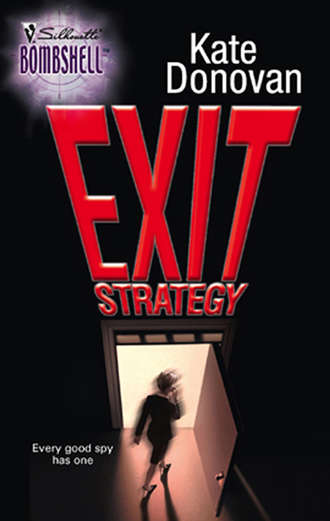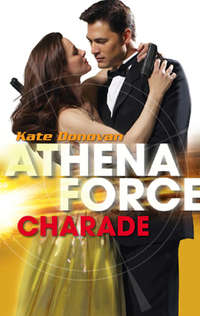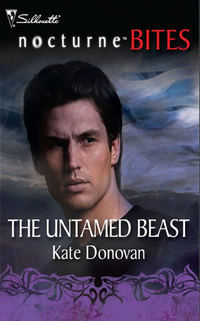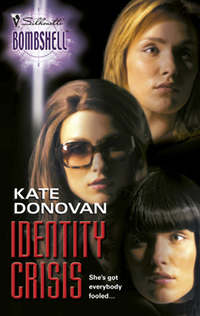
Полная версия
Exit Strategy
Miranda smiled. “She thinks you’re lonely. If she knew you were socializing, especially with women, she might be less obsessed with rescuing you.” She grimaced then asked, “That’s what you meant by socializing, right? Women?”
“Yeah,” he confirmed with a laugh. “That’s what I meant. But you’re the first woman I’ve had here at the cabin. And the only woman I’d want here.”
Miranda eyed him coolly. “Did you say something about a bottle of water?”
“Yeah,” he said, dropping the flirtation without protest. “One bottle of water, coming right up.”
They sat under a pine tree, sipping water and munching on apple slices, while Ortega told her the story of his adventure in South America with Carerra and Kell. In some respects it tracked the information in the file almost word for word, but occasionally, she got a glimpse into the ordeal that no file could ever effectively convey.
“The most important thing to remember about Jonathan Kell is that life dealt him a bizarre hand. A brilliant scientist who wouldn’t hurt a fly and only wanted to do good. Yet so plagued with fear—fear of virtually everything—that it paralyzed him socially and professionally. That allowed the drug company to take enormous advantage of him. To use his brilliance, but when Kell needed them to pay the ransom, they just cut him loose. His greatest fear—abandonment—was confirmed that day. Abandoned by his employer and associates. And also abandoned by his country.”
“His country saved his life. You were CIA and you came through for him.”
“Kell knew I was there on a completely different mission. He was grateful to me personally, but not to the U.S. It infuriated him on my behalf that they didn’t send someone to rescue me. I tried to explain to him that they couldn’t do that, since my op didn’t exist officially. I also told him they figured if I was still alive, I’d find a way to escape on my own.”
“Small comfort when they’re torturing you daily.”
“I was trained for that. Kell wasn’t.”
“That’s one of my questions,” she admitted. “I get why they couldn’t break you. But why didn’t Kell—a civilian with phobias—just answer their questions?”
“He did. They thought he was holding out on them, but he wasn’t. He tried to tell them about his research, but they were interested in something else that his company was rumored to be developing. Believe me, if he’d known about it, he would have given them every detail. But he says the rumors were just that. Rumors. Or maybe it was another company doing it. There were dozens of little research groups in the rain forest in those days, looking for million-dollar cures.”
“Poor guy.”
“They’d bring him back to the cage convulsing with fear. It was chilling. They used electrodes on him, and whips, but it didn’t take them long to realize all they had to do was come near him and his brain exploded with images ten times worse than anything they could imagine doing to him.”
“Do you remember what the other project was? The one in the rumors?”
Ortega nodded. “They called it Night Arrow. Something that made arrows fly straighter, according to Carerra’s men. Not a product you’d ever need,” he added admiringly.
She smiled. “Not much call for that in modern warfare anyway, is there?”
“Right. Unless they could apply it to bullets or torpedoes or whatever. It always sounded like a pipe dream to me. And to Kell. Benito Carerra claimed there were legends of warriors who anointed their arrows with certain magical potions that made them superior or invincible, but aside from the numerous poisons available down there, most potions were just religious concoctions designed to give confidence to the warrior and create fear in the enemy.”
“So they kept torturing the poor guy.”
“It was brutal. Carerra was such an asshole. I mean, torturing me was one thing. I came after him. But anyone could see Kell was harmless.”
“You didn’t just come after him, you used his wife to do it.”
“So he was the victim?” Ortega laughed. “I guess that makes sense from your point of view. You probably wanted to torture me yourself after what I did to you.”
“Which was basically the same thing you did to Mrs. Carerra. What was her name? Angelina?”
“It was hardly the same,” Ortega protested.
“Really? You slept with her to advance an objective. Sound familiar? Anyway,” she said with a sigh, “back to Kell. Everyone assumes he’s useful to the Brigade because of his phobia research. Do you agree?”
Ortega nodded. “Our military has spent decades—and millions—trying to find ways to inhibit fear in a soldier. To promote fight-over-flight as a response. They’ve had success, but the results are always short-lived and the side-effects fairly extreme. Kell probably found something safer or more effective.”
“And he would rather sell it to the Brigade because he hates the United States?”
Ortega nodded again. “He’s a fairly gentle guy, but if they convinced him they found a way to take down the U.S. and big business—his two enemies—that would definitely motivate him. He used to rant about that kind of thing when we were imprisoned together. Revenge fantasies masquerading as political theory. Poor guy,” he added sadly. Then he asked Miranda, “Any other questions?”
“Just one.” She gave him an apologetic smile. “You’re the founder of SPIN. The original spinner who taught Kristie everything she knows.”
“What’s your point?”
“You said she has enough information already to figure out who the Brigadier is. So? Doesn’t that mean you could do it, too? Do you have any theories? Any leads you can give us?”
“I never said she had enough information to figure it out,” he corrected her. “Just enough to plan an op to infiltrate the group. Not through Kell—he’s too suspicious and way too bitter to trust anyone—”
Конец ознакомительного фрагмента.
Текст предоставлен ООО «ЛитРес».
Прочитайте эту книгу целиком, купив полную легальную версию на ЛитРес.
Безопасно оплатить книгу можно банковской картой Visa, MasterCard, Maestro, со счета мобильного телефона, с платежного терминала, в салоне МТС или Связной, через PayPal, WebMoney, Яндекс.Деньги, QIWI Кошелек, бонусными картами или другим удобным Вам способом.







